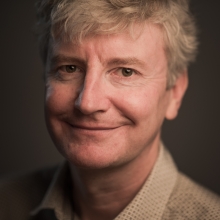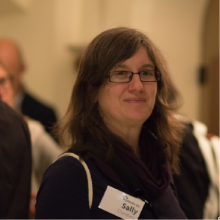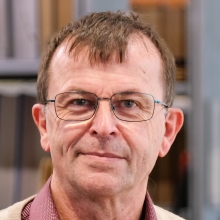Event name: Panel | CLARIN and Libraries: Infrastructures Working Together
Date: Monday, 10 October 2022
Time: 17:00 - 17:40 (CEST)
Venue: Hybrid (for registered participants of CLARIN2022)
Panellists: Sally Chambers, Andreas Witt, Peter Leinen
About the Panel
While new research infrastructures for the arts, humanities and social sciences, such as CLARIN and DARIAH, have emerged in recent decades, libraries have been for many centuries the most important resource for researchers, and remain so today in the digital age. For virtual, digital, and distributed research infrastructures such as CLARIN to be effective, they need to work closely with libraries, which play key roles as creators and curators of digital data, and as intermediaries between researchers and digital data, tools and expertise. The CLARIN and Libraries workshop took place at KB National Library of the Netherlands in May 2022. This was the first workshop with the explicit aim of bringing together the international CLARIN community and research libraries in order to discuss issues relating to the delivery of digital content for researchers, and to plan the practical steps for future collaboration. This panel session will feature participants from the workshop, who will be discussing what these next steps should be.
Moderator
Martin Wynne

Panellists
Sally Chambers

Bio: Sally Chambers is Digital Humanities Research Coordinator at the Ghent Centre for Digital Humanities. She is the first point of contact for researchers who are interested in using digital tools, methods and collections in their research. Sally provides advice and guidance on funding proposals with a digital component and on digital project management. She is the day-to-day coordinator of Belgian participation in DARIAH, the Digital Research Infrastructure for the Arts and Humanities and project coordinator for the CLARIAH Open Humanities Service Infrastructure in Flanders. Since late 2020, she divides her time between GhentCDH and the KBR, Royal Library of Belgium, where she coordinates the DATA-KBR-BE project to facilitate data-level access to KBR’s digitised and born-digital collections for digital humanities research. In March 2022, Sally was appointed to the DARIAH-EU Board of Directors. Sally has a BA in Literature with Psychology, a MA in Cultural Studies and a postgraduate qualification in Information Services Management. (Slides)
Peter Leinen

Andreas Witt

Bio: Andreas Witt is Professor of Computational Humanities and Text Technologies at the University of Mannheim and heads the department of Digital Linguistics at the Leibniz Institute for the German Language in Mannheim. He studied Linguistics, Psychology and Computer Science at Bielefeld University (M.A. 1996). From 1996 to 2006 he served as an assistant lecturer in the Text Technology group at Bielefeld University, and in 2002 completed his PhD in computational linguistics and text technology at Bielefeld University.
Witt is Honorary Professor of Digital Humanities at the Institute for Computational Linguistics at Heidelberg University and – by co-optation – Professor at the Institute for Digital Humanities at the University of Cologne. He is a member of the scientific advisory boards of the Meertens Instituut in Amsterdam and the Austrian Centre for Digital Humanities in Vienna, and active in many national and international research organizations, review panels and expert groups.
Witt's research is situated in the field of annotation science, he is Chair of the ISO working group on linguistic annotation, and Co-Chair of the Special Interest Group:
for Linguists. Witt also publishes on legal and ethical issues that are pertaining to research. (Slides)
Publications
- Darja Fišer and Andreas Witt. CLARIN. The Infrastructure for Language Resources. De Gruyter, 2022.
- Kamocki, Paweł/Witt, Andreas (2022): Ethical issues in language resources and language technology – Tentative taxonomy. In: Calzolari, Nicoletta/Béchet, Frédéric/Blache, Philippe/Choukri, Khalid/Cieri, Christopher/Declerck, Thierry/Goggi, , Sara/Isahara, Hitoshi/Maegaard, Bente/Mariani, Joseph/Mazo, Hélène/Odijk, Jan/Piperidis, Stelios (Hrsg.): Proceedings of the 13th International Conference on Language Resources and Evaluation (LREC 2022). Marseille, France, 20-25 June 2022. Paris: European Language Resources Association (ELRA), 2022. S. 559-563.
- Hagen, Thora/Ketzan, Erik/Jannidis, Fotis/Witt, Andreas (2020): Twenty-two historical encyclopedias encoded in TEI: a new resource for the Digital Humanities. In: DeGaetano, Stefania/Kazantseva, Anna/Reiter, Nils/Szpakowicz, Stan (Hrsg.): Proceedings of the The 4th Joint SIGHUM Workshop on Computational Linguistics for Cultural Heritage, Social Sciences, Humanities and Literature. December 12, 2020, Barcelona, Spain (Online). Stroudsburg, PA: ACL, 2020. S. 112-120.
Prague
Czechia